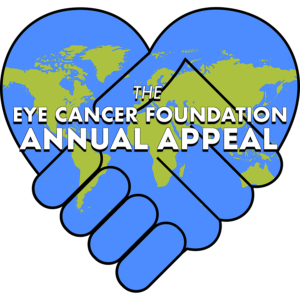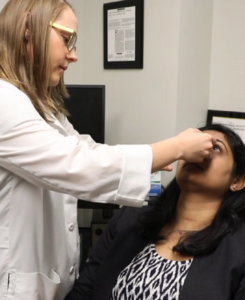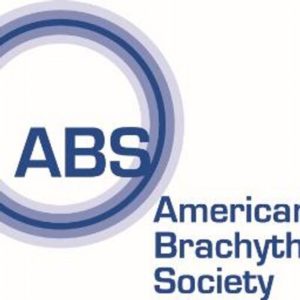The NYECC Support Group Therapy: A Recap!
 The New York Eye Cancer Center Support Group, sponsored by the Eye Cancer Foundation, met for the second time on October 13, 2017. Members in attendance were in varying stages of their treatment and recovery, ranging from a few months to over a decade! Karen Campbell, a licensed clinical social worker with years of experience in oncology and vision loss, led the group in their discussion.
The New York Eye Cancer Center Support Group, sponsored by the Eye Cancer Foundation, met for the second time on October 13, 2017. Members in attendance were in varying stages of their treatment and recovery, ranging from a few months to over a decade! Karen Campbell, a licensed clinical social worker with years of experience in oncology and vision loss, led the group in their discussion.
Group members shared the struggles of living with cancer and what their “new normal” is like, such as the need for ongoing scans and check-ups. Anxiety and depression around loss of control, feelings of isolation, and worries about the future were common themes, as was the need for ongoing support. Techniques for coping with these experiences and stressors were discussed and Karen lead the group in a guided imagery relaxation exercise that members found helpful.
Dr. Finger’s associate, Dr. Olszewski, was also in attendance and said, “Mental health is such an important part of overall well-being and quality of life, especially after a life changing diagnosis, such as ocular melanoma. We saw the perfect opportunity to introduce holistic care to the practice by starting this support group. Thanks to the support of the Eye Cancer Foundation, we are working hard to provide monthly group meetings for patients with this diagnosis. Karen Campbell is a natural fit for steering the meeting, given her experience in dealing with patients with both cancer and vision loss.
It was my pleasure to attend our second group session. Although I do not have a personal history ocular melanoma, I shared my experiences as a provider in this practice. I also have family members with cancer diagnoses and shared my feelings and point of view as a member of their support systems. I found Karen’s guided breathing exercises particularly enlightening; I felt an immediate wave of calm wash over me as she spoke, which stayed with me, even after I left the meeting. I truly believe that many of our patients would benefit from attending these group sessions.”
Stay tuned for an upcoming announcement regarding the date, time, and place of the next NYECC Support Group session.














